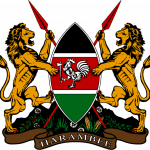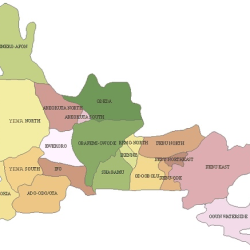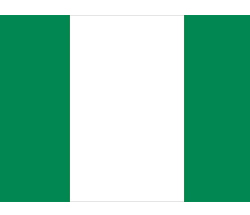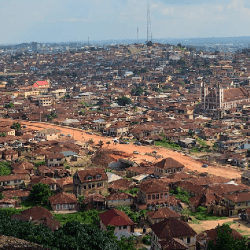Considering the immense human and material endowments of Ogun State, however, it is obvious that this has not had an appreciable effect on the economic growth and development of the State. In other words, for a very long time, the State has been operating far below its potentials, thus affecting the living conditions of the people negatively.
In spite of its abundant natural resources and arable farmland, the State has remained a Civil Service State since its inception about 30 years ago. Although the number of industries is rising daily, it is still abysmally low compared to the number of job seekers in the State. This implies that despite the creative strategies of the Government on employment generation, unemployment is still high and those in employment have to fend for many unemployed people, leading to reduced earnings for the employed and mass poverty both for the workers and non-workers.
The poor industrialisation of the State and the accompanying high unemployment also translates to poor internally generated revenue (IGR) for Government. Thus, for instance, at the beginning of this administration, 75 per cent of Government revenue went into recurrent expenditure. Even now, with prudent management and higher earnings from the Federation Account, it -has only reduced it to 55 per cent. Obviously, this affects the ability of Government to lay a solid foundation for high living standards for the people. A huge recurrent expenditure crowds out the resources needed to provide good road networks, well equipped hospitals, potable water, housing, and good schools. Therefore, the achievements of the Government of Ogun State in all these sectors have been made possible by creative use of resources and prudent management.
In addition, the absence of good infrastructure in the state, the large size of government characterised by inefficiency and corruption places a heavy burden on the people and the Government. This was the picture at the inception of this administration in Ogun State in 2003. This is the problem the Government is now confronting with the instrumentalities of Ogun State Economic Empowerment and Development Strategy (OGUN SEEDS).
Ogun State
Ogun is a major industrial state in Nigeria. It is located in the country’s south western zone.
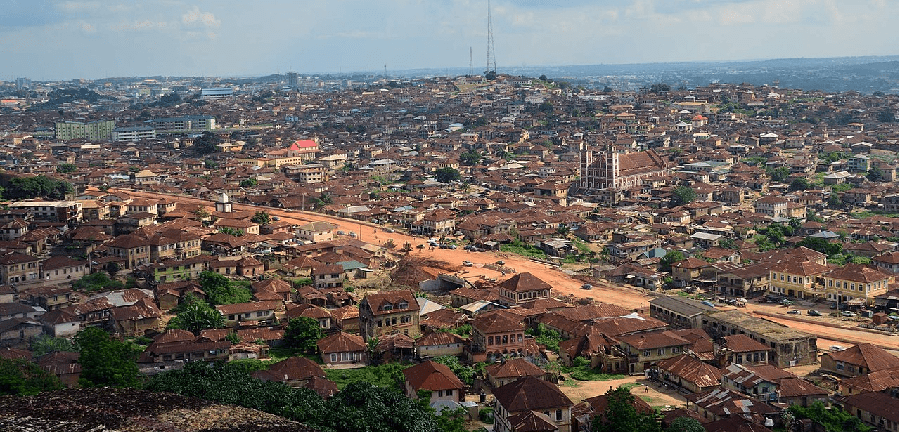
Nicknamed the “Gateway to Nigeria”, the state is notable for having a high concentration of industrial estates and being a major manufacturing hub in Nigeria.
Major factories in Ogun include the Dangote Cement factory in Ibese, Nestle, Lafarge Cement factory in Ewekoro, Memmcol in Orimerunmu, Coleman Cables in Sagamu and Arepo, Procter & Gamble in Agbara, amongst others.
Founded
It was created on 3 February 1976 from the former Western State.
Boundaries
Ogun State borders Lagos State to the south, Oyo State and Osun State to the north, Ondo State to the east, and the Republic of Benin to the west.
Capital
Abeokuta is both Ogun State’s capital and most populous city
Important cities
Important cities in the state include Abeokuta , Ijebu Ode, the royal capital of the Ijebu Kingdom, and Sagamu, Nigeria’s leading kola nut grower.


Geography
Ogun state is covered predominantly by rain forest and has wooden savanna in the northwest.
Land area
Ogun State has a Land Area of 16,409.26 square kilometers.
Major tribe
Ogun State is mostly Yoruba with the Yoruba language serving as the major one in the state.
Religion
The main religion in Ogun State is Christianity. A certain amount of other religions are being practiced.
Agriculture
Ogun State is noted for being the almost exclusive site of Ofada rice production.
TOURISM SITES
Olumo Rock in Abeokuta, Birikisu Sugbo Shrine at Oke-Eri, Yemoji Natural Swimming Pool at Ijebu-Ode, Oyan Dam in Abeokuta North, Iwopin Boat Regatta and Ebute-Oni in Ogun Waterside.
Other Sites are Madam Tinubu Shrine in Abeokuta, Oronna Shrine in Ilaro, Area J4 Forest Reserve; Tongeji Island in Ipokia, Old Manse at Ogbe, Abeokuta, St. James Anglican School, Ota and Ijamido River Shrine in Ota.
Check out our Tourism Gallery
LOCAL GOVERNMENT AREAS
- Abeokuta -North
- Abeokuta South
- Ado-Odo/Ota
- Ewekoro
- Ifo
- Ijebu East
- Ijebu North
- Ijebu North-East
- Ijebu-Ode
- Ikenne
- Imeko-Afon
- Ipokia
- Obafemi/ Owode
- Odeda
- Odogbolu
- Ogun Waterside
- Remo North
- Sagamu
- Yewa North
- Yewa South
THE PEOPLE
The People of Ogun State belong to the Yoruba Ethnic Group of South-West Nigeria and also live in parts of Benin Republic and Togo, with substantial Diaspora elements in Brazil, Cuba and Sierra Leone, consequential to the Trans-Atlantic Slave Trade.
The Sub-groups are mainly the Egba, Yewa, Awori, Egun, Ijebu, Remo, Ikale and Ilaje, Anago, Ketu, Ohori etc.
PROMINENT PERSONS
Ogun is also home to many icons in Nigeria in particular and Africa in general.
Ogun sons and daughters make their mark in diverse professions and have contributed in no small measure to the development of the state and Nigeria both at home and abroad.
Ogun State has produced icons and pioneers such as:
• Alexander Akintola Sapara-Williams
The first Nigerian Lawyer
• Hon. Justice Olumuyiwa Jibowu
The first Nigerian Judge to sit on the Supreme Court Bench
• Sir Adetokunbo Ademola
The first Indigenous Chief Justice of Nigeria
• Chief Simeon Adebo
Pioneer Permanent Secretary, Head of Civil Service and Permanent Representative of Nigeria at the United Nations
• Chief Obafemi Awolowo
The first Nigerian Lawyer to head a Regional Government
• Professor Wole Soyinka
Black Africa’s first Nobel Laureate
• Adeoye Lambo
One-time Deputy Director General of the World Health Organisation
• Prof. Anthony Asiwaju
Renowned Historian
• Chief J. F. Odunjo
Foremost Author
• Oluṣẹgun Arẹmu Ọbasanjọ
A former Nigerian Army general and former President of Nigeria
LANGUAGES
Yoruba and English (Official Language) and several dialects of the sub-groups.
FESTIVALS
Agemo, Lisabi, Ogun, Igunnuko, Orisa-Oko, Egungun, Obirin-Ojowu, Gelede, Oro, Ojude-Oba and Sango.
POPULATION
The population of Ogun State based on 2006 Census was 3,751,140 comprising of 1,864,907 Males and 1,886,233 Females.
However, the projected population as at 2011 Census is 4,397,604 with 2,186,301 Males and 2,211,303 Females
The State is endowed with a favourable climate and good vegetation for all year round cultivation of various cash and food crops as well as livestock rearing.
VEGETATION
The climate is also conducive for business and industrial growth. In Ogun State, we have in the south, the evergreen forest vegetation and soil most suitable for the cultivation of cash and food crops like oil palm, rice, kola- nut, cocoa, cotton, cassava, cocoyam and vegetables. While in the north, we have a vast grazing savannah land that is suitable for animal husbandry. In addition to this, there are forest reserves, rivers and lagoons with a beautiful ocean front down south that is good for beach resorts.
NATURAL RESOURCES
The State has natural resources that include forest and water bodies as well as large quantities of mineral deposits, such as limestone, phosphate, granite stone, gypsum, bauxite, bitumen, feldspar, clay, glass sand, kaolin, quartz, tar sand and gemstones.
